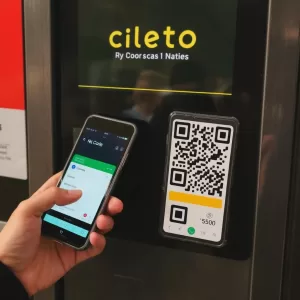Crypto and Web3 in Africa: Influence of Blockchain
Blockchain technology especially Crypto and Web3 is revolutionizing Africa by improving financial inclusion, securing digital transactions, and transforming industries like supply chain, healthcare, and real estate. With over 50 million crypto users, Africa is one of the fastest-growing markets for blockchain adoption.
But how exactly is blockchain, especially crypto and web3, shaping the future of Africa?
What You’ll Learn in This Article:
- Challenges and the Future of Blockchain Adoption in Africa:
Finally, we will discuss the challenges facing blockchain adoption and look at its future potential in Africa. - How Blockchain is Transforming Key Industries in Africa:
You will explore how blockchain technology is reshaping sectors such as agriculture, healthcare, and logistics. - The Impact of Crypto and DeFi on Financial Inclusion:
Additionally, the article covers how cryptocurrencies and decentralized finance (DeFi) are enhancing financial access across the continent.
The Role of Blockchain in Financial Inclusion
Africa has over 350 million unbanked people, making financial services inaccessible for many. However, blockchain technology is addressing this issue by offering:
- Stablecoins for Inflation Protection:
Many Africans are turning to stablecoins like USDT to protect their savings from currency devaluation. This allows them to preserve the value of their money in the face of economic instability. - Decentralized Finance (DeFi):
Platforms like Aave and Compound enable users to save, borrow, and earn interest without relying on traditional banks. This provides financial access to those who are excluded from the banking system. - Borderless Transactions:
Cryptocurrencies such as Bitcoin and USDT facilitate fast, low-cost remittances, making it easier for Africans to send money across borders, especially in regions with limited banking infrastructure.
💡 For example, Nigeria ranks among the top 10 countries for cryptocurrency adoption, with over 22 million users.
🔗 Related: How blockchain Technology in Africa is revolutionizing industries
Blockchain, Crypto and Web3 in Supply Chain and Agriculture
Africa’s agriculture and supply chain sectors face issues such as fraud, inefficiencies, and a lack of transparency. However, blockchain technology is addressing these challenges through:
- AI-Powered Smart Contracts:
Blockchain-powered smart contracts automatically enforce agreements, ensuring fair trade and instant payments. This reduces the risk of delays and disputes, fostering more efficient transactions. - Supply Chain Tracking:
Blockchain records every step of a product’s journey, ensuring transparency and preventing fraud or counterfeit goods. This creates a more reliable and trustworthy supply chain. - Fair Trade & Payments for Farmers:
Through blockchain, farmers receive direct payments, bypassing traditional middlemen. As a result, they gain more control over their earnings and reduce the risk of exploitation.
💡 For example, IBM’s Food Trust Blockchain is being used in Kenya to track food quality and improve exports to global markets.
NFTs & Web3: Empowering African Creators
The rise of Web3 and NFTs (Non-Fungible Tokens) is opening up new opportunities for African artists, musicians, and content creators. These developments are driving change in various creative industries:
- Music & Entertainment on Blockchain:
Musicians can now sell their music as NFTs, allowing them to earn directly from fans. This new model provides artists with a more equitable way to monetize their content. - Digital Art & NFT Marketplaces:
Platforms like OpenSea enable African artists to sell their art directly, bypassing middlemen. This provides them with greater control over their work and earnings. - Blockchain Gaming & Play-to-Earn:
In addition, gamers in Africa are now making money through NFT-based games. This emerging trend allows players to earn rewards while enjoying their favorite games.
💡 For example, South African musician Nasty C released exclusive music NFTs, allowing fans to own and resell digital collectibles.
Real Estate & Land Ownership on Blockchain, Web3 and Crypto
Land disputes and the lack of proper documentation are major challenges in Africa’s real estate market. However, blockchain technology is offering innovative solutions to address these issues:
- Smart Contracts for Property Sales:
By using smart contracts, property transactions become automated, which reduces fraud and accelerates the process of buying and selling real estate. - Tamper-Proof Land Records:
Governments can use blockchain to securely store land titles, ensuring that records are tamper-proof and reducing the risk of fraud and disputes. - Fractional Real Estate Ownership:
Blockchain enables fractional ownership, allowing investors to buy small portions of properties. This opens up real estate investment opportunities to a broader range of people.
💡 For example, Ghana’s government is working with blockchain companies to digitize land ownership records.
Blockchain in Healthcare & Digital Identity
With many people in Africa lacking official identification documents, blockchain, crypto, and Web3 technologies are being leveraged to create secure digital IDs, improving access to essential services. These solutions are addressing critical challenges in various sectors:
- Vaccine & Drug Tracking:
Blockchain also plays a crucial role in tracking vaccines and drugs, ensuring their authenticity and preventing the circulation of counterfeit medicines. - Blockchain-Based Digital IDs:
Blockchain enables the creation of secure digital IDs, helping unbanked individuals access financial services that were previously unavailable to them. - Medical Records Storage:
Blockchain technology ensures the secure storage of patient data, which enhances healthcare services by providing better access to medical records and improving patient care.
💡 For example, Zambia’s government is testing blockchain-based digital identity systems to improve service delivery.
Crypto Adoption & Regulation in Africa
As more Africans adopt cryptocurrencies, governments are introducing regulations to protect users while fostering innovation. These regulatory efforts are shaping the future of crypto in the region:
- More Blockchain Startups:
Furthermore, new blockchain startups are emerging to provide secure and compliant crypto services, contributing to the growth and stability of the industry. - Central Bank Digital Currencies (CBDCs):
Countries like Nigeria have already launched their own digital currencies, such as the eNaira, to facilitate secure and regulated digital transactions. - Crypto Regulations:
In addition, countries like South Africa and Kenya are developing clear policies for crypto taxation and security, ensuring that the crypto market operates within a legal framework.
💡 For example, Binance & Yellow Card are expanding crypto services across multiple African countries.
Challenges of Blockchain Adoption in Africa
Main Challenges of Blockchain, Web3, and Crypto in Africa
Despite the potential of blockchain, Web3, and crypto in Africa, several challenges continue to hinder their widespread adoption:
- Scams & Ponzi Schemes:
The lack of education and awareness about cryptocurrencies has led to a rise in scams and Ponzi schemes, posing significant risks for inexperienced investors. - Internet and Electricity Limitations:
In many rural areas, stable internet access and reliable electricity are limited, which hinders the use of blockchain applications and crypto transactions. - Regulatory Uncertainty:
Additionally, some African governments have banned or heavily restricted crypto trading, creating a volatile environment for businesses and users in the space.
💡 Solution: More blockchain education programs and better regulations can help solve these challenges.
The Future of Blockchain in Africa
The future of blockchain, Web3, and crypto in Africa is promising, driven by several key developments:
- AI + Blockchain Innovation.
Furthermore, the integration of AI with blockchain technology will enhance security and automate processes. By doing so, it will make crypto solutions more efficient and reliable. - More Blockchain-Based Businesses.
African startups will continue to innovate, developing new blockchain solutions across various sectors. - Crypto-Friendly Policies.
Additionally, more African governments are expected to introduce clear regulations for blockchain and crypto. As a result, it will assist in creating a more stable and supportive environment for businesses and users.
💡 For example, Africa’s blockchain market is expected to grow by 50% annually, attracting more investments from global companies.
Conclusion: Blockchain is Africa’s Digital Future
Blockchain technology is reshaping Africa’s economy, providing financial inclusion, transparency, and digital innovation. With rising adoption and investments, Africa is set to become a global leader in blockchain technology.
Key Takeaways:
- Regulatory Clarity and Education are Key to Mainstream Adoption:
Furthermore, clear regulations and increased education will be crucial for the widespread adoption of blockchain and crypto technologies across Africa. - Crypto and DeFi are Improving Financial Inclusion:
As a result of crypto and decentralized finance, more Africans are gaining access to financial services that were previously unavailable. - Blockchain is Revolutionizing Real Estate, Healthcare, and Supply Chain Management:
Additionally, blockchain is transforming key industries by enhancing transparency, efficiency, and security in sectors such as real estate, healthcare, and supply chains.
Want to learn more about blockchain, web3 and crypto development services by Teknikali Tech? Follow the link.
💬 Do you think blockchain will replace traditional banking in Africa? Share your thoughts in the comments!
Share this content:







Post Comment